The National Cycling League made its anticipated debut over the weekend, but were we entertained?
The NCL makes big promises of reigniting American fans and reinventing cycling. Is it succeeding? Here are our thoughts
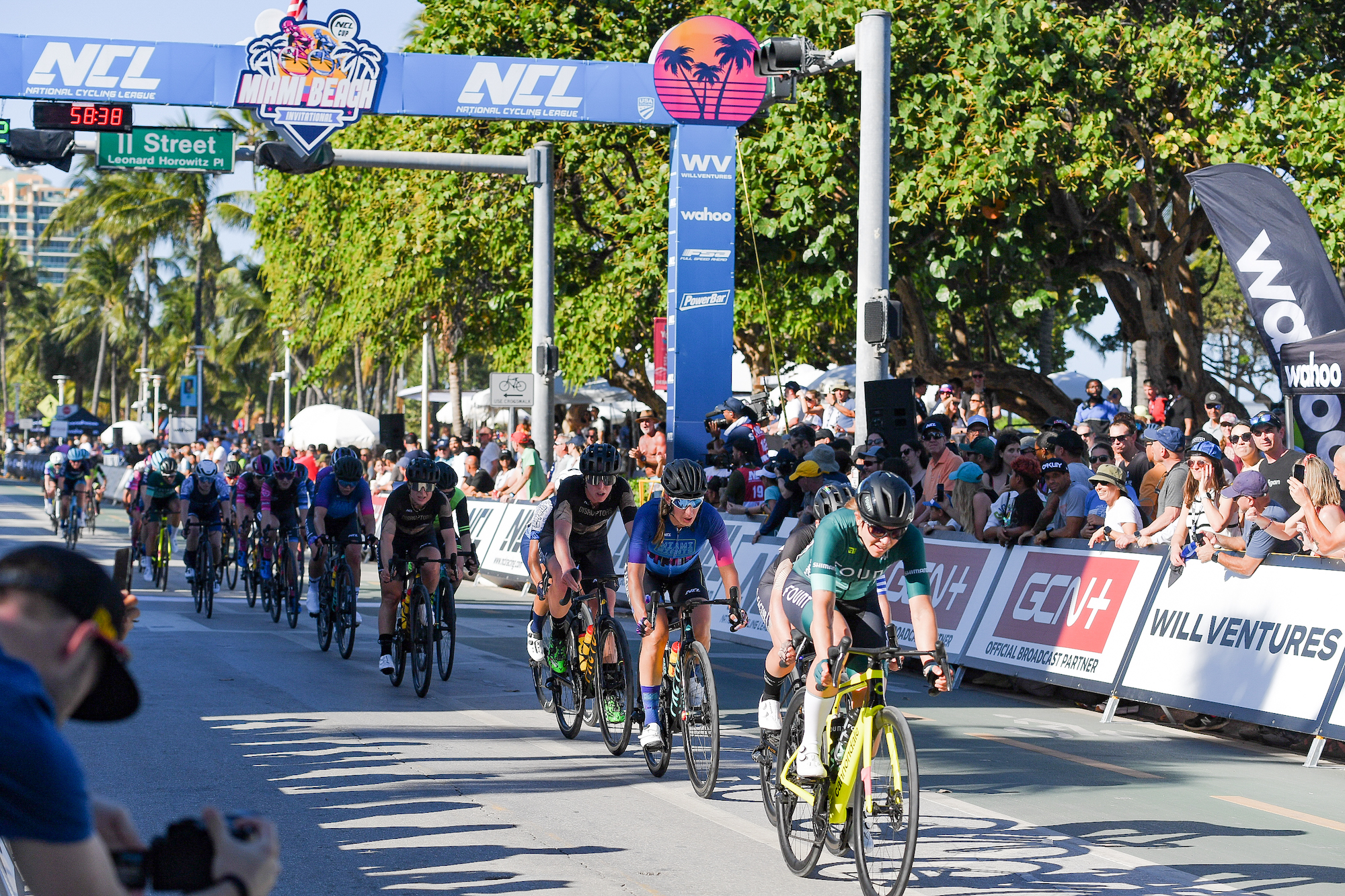

Henry Lord
Faster. Grittier. Not European.
Those were the descriptors Paris Wallace, CEO of the National Cycling League, used in the build-up to the League's inaugural race on Saturday, April 8.
Wallace and his cohort of all-star investors aim to reignite cycling fandom in the United States by reinventing what American bike racing looks like.
The NCL Cup is a four-race, invite-only, co-ed bike racing series that takes place in the heart of America's biggest cities, puts fans first and throws around a lot of money. The races themselves feature a unique format and set of rules intended to make bike racing more exciting.
"We are not European cycling. We are creating something new, something different, making bike racing more accessible, faster, more exciting," says Wallace. "You have an entire bike race every single lap. And you have all the drama that typically unfolds over hours in three minutes. And then you have it again and again and again."
In case you missed the action on Saturday, the format looks like this:
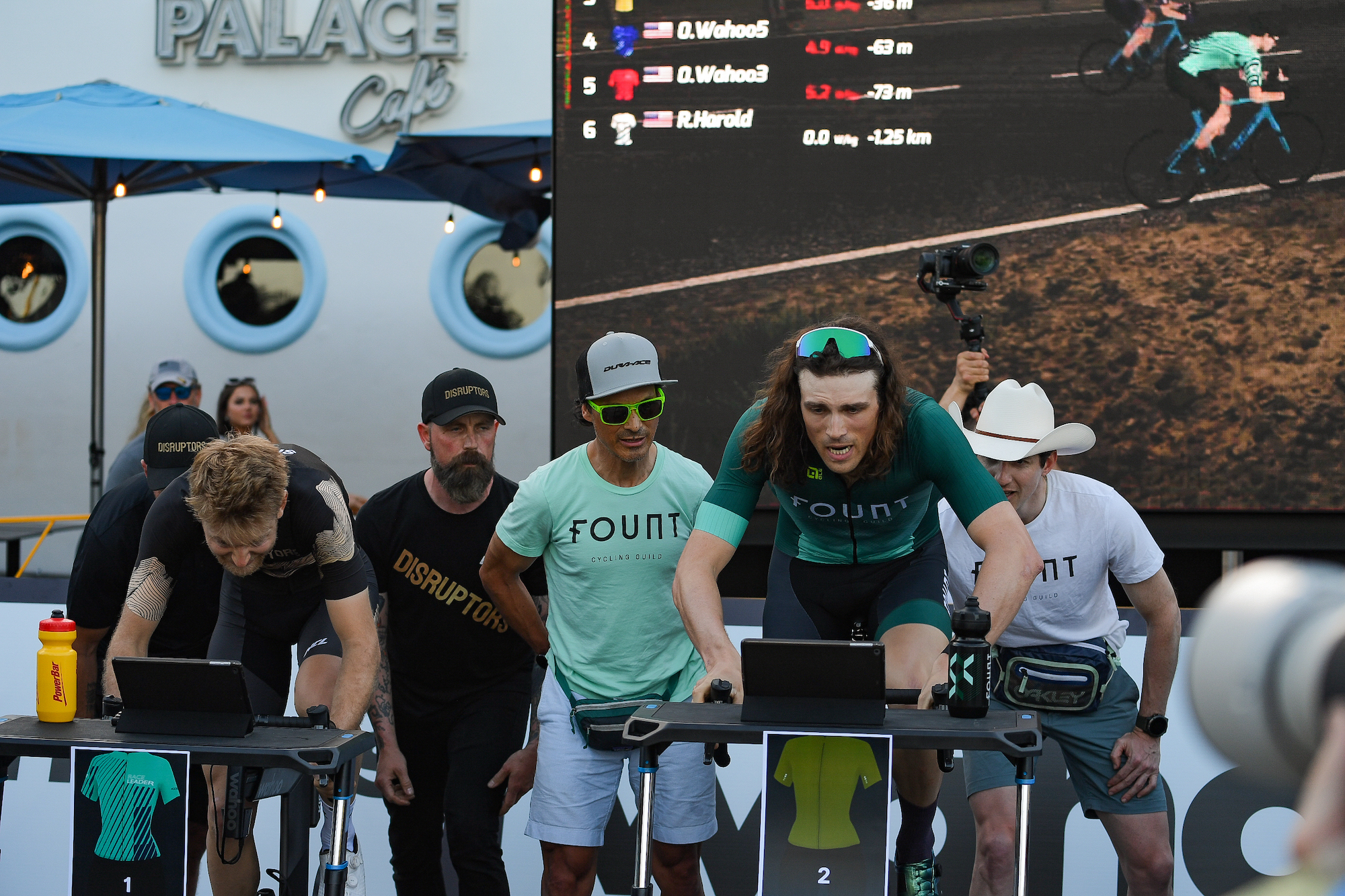
A Fount Cycling and Denver Disruptors rider battle it out in the qualifier.
The NCL Format
- There are 10 teams made up of an equal number of male and female riders. These 10 teams will compete in all 4 events.
- On the evening before the race, the teams participate in a short qualifier to determine the starting order for the next day. In Miami, this came in the form of a one-lap virtual race on RGT.
- Race days consist of a 60-lap road criterium in which team points are scored each and every lap. It’s a team sport; there is no individual rider who wins.
- Points are scored three deep each lap with; 3 points for first place, 2 points for second and one point for third place.
- The final time to the line is only slightly more valuable with 9 points for the lap winner, 6 points for second place and 3 points for third.
- A co-ed team competition, the first 30 laps are contested by the teams' female riders. The second 30 laps make up the men's race.
- While the men's and women's field race separately, the points are aggregated. The team's points are a combination of both the men's and women's races and the team with the most points at the end of the evening wins the bike race.
- Also unique to the NCL race format is the fact that teams can substitute riders throughout the race up until the final five laps. In the pit, riders can sit out a lap or two and recover before rejoining the fray.
The debut race in Miami was fast and furious. The pace was relentless. And after some three hours of racing, the Denver Disruptors, a newly formed NCL-specific team, rode off with the win. The other NCL team, the Miami Nights, finished in second place and the collaboration team of the women's Goldmans Sachs ETFS squad and men's Texas RoadHouse Cycling p/b VQ Labs team rounded out the podium.
Get The Leadout Newsletter
The latest race content, interviews, features, reviews and expert buying guides, direct to your inbox!
Our North American editor, Anne-Marije Rook, and intern, Henry Lord, watched every minute of the action. A former elite racer and longtime cycling journalist, Rook, 36, has witnessed both the height of American cycling fandom —Lance mania— as well as the demise of road racing on American soil. Lord, 20, grew up mountain biking and is fairly new to competitive road cycling. He currently competes for his Fort Lewis college team.
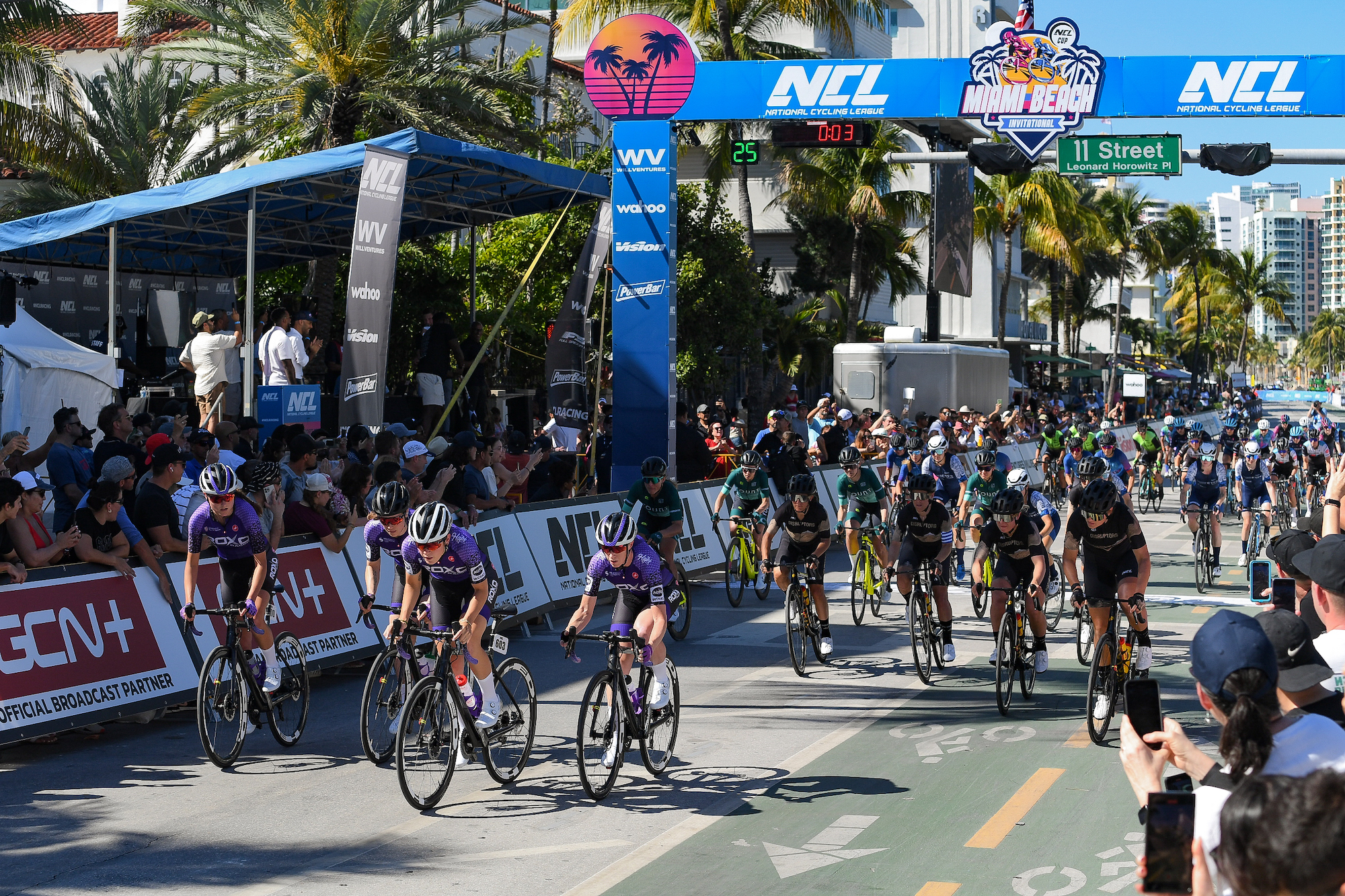
The women's field rolls from the starting line. Roxo racing the qualifier and earned the valuable front row starting position.
Rook: “Wallace’s efforts and investments in U.S. cycling are most welcomed but..."
It's no secret that road cycling in America is struggling. Field sizes at events across the country are dwindling and most international events have folded due to a lack of financial support. Only three UCI races remain on U.S. soil and they barely reach an audience beyond local news and a handful of endemic publications. And without a superhero to get behind, American sports fans pay little attention to what happens abroad, even if young American talent is netting stage wins.
This is all to say that Wallace's efforts and investments in U.S. cycling are most welcomed. And with online streaming, impressive non-endemic financial backing and race venues in the heart of large American cities, the NCL is well-positioned.
I'm intrigued by the gender-equal approach and emphasis on fan engagement. The NCL certainly seems the most innovative and exciting development American road cycling has seen in many years, and thus, I was keen to tune in on Saturday.
It was a big day for cycling fans. I, myself, had gotten up at 5:45 a.m. that morning so I could be on my trainer, watching the third edition of Paris-Roubaix Femmes, by 6 a.m. The early morning rise was rewarded with a captivating two hours of coverage that culminated in a thrilling finale. And by the time the post-race coverage had been written, it was time for me to sit down for another few hours of bike racing. In contrast to the Paris-Roubaix, a monument of cycling that dates back to 1896, the NCL proclaims itself to be the "future of cycling,"
It was a hot spring day in Miami Beach with temperatures nearing 90 degrees. Attracted by the music, the announcers and perhaps, the presence of NFL and NBA stars, beach goers wandered off the sand to see what was going on. Many would witness their very first bike race — a good thing, indeed.
As the women's race got underway, it reminded me of high-stakes criteriums where the last ten or so laps would be prime-a-lap, meaning that money or a prize was sprinted for each of the final ten laps. But this went on for 50 laps! (The Miami race was shortened from 60 laps due to Florida's curfew laws.)
Early on, it was clear that the two NCL-created teams, the Denver Disruptors and Miami Nights, were best prepared for the racing format and effort it required to succeed. They gobbled up top points lap after lap.
The team aspect of the NCL format is the collective amassing of points. By being among the top 3 in a lap, riders earn points for their team. I thought this might create an incentive for a breakaway to form or even a daredevil attempt to lap the field. But perhaps the pace was simply too high because the race remained a mad dash to the line every 2 to 3 minutes.
I think that unless you've been a racer yourself, it's hard to appreciate just how hard that race must have been. As a rider, you're basically doing a high-intensity workout in which you're riding at well above tempo, then doing an all-out sprint only to drop back to high tempo. For 50 fast-and-furious laps.
For such an effort, the ability to substitute riders and give them a break for 2 or 3 laps is certainly enticing. However, as a viewer, it was hard to see the substitutions' race impact at the time. Post-race, Leah Kirchmann (Denver Disruptors), a former WorldTour racer and one of the most experienced riders in the peloton, revealed that the team's use of the substitutions is what allowed them to win so many sprints.
"We did quite a few substitutions, and that played into our hands tactically. We had a few times where we substituted a rider and they were able to take points the next lap. I think it's a really great addition to the race. It adds a new dynamic," she said.
And I think I would agree with that. It works in this format.
In total contrast to the Paris-Roubaix race finish hours before, however, the finish of the women's race in Miami was oddly anti-climactic. The end of that race would not identify a winner. It merely signaled the start of an intermission, if you will, before the men's race, when the points tally would continue where the women left off. Still, in the last lap, the CCB rider who made it to the line first, posted up in celebration. She hadn't won. And neither had her team, which was now sitting in third. Was this mere habit? Relief? Happiness to have helped secure a few more points for her team? Either way, it felt unsatisfactory to not have that thrill, that edge-of-your-seat tension as the peloton entered the last lap to crown a winner.
As the men took over, the Denver Disruptors continued to dominate. The racing was fast and furious. Five laps into the 25-lap race, half the peloton had already been lost to the pace and got pulled by officials. The only respite could be found in the pit once substituted. There were efforts made for breakaway but ultimately, the pace was brutal and turned the race into a race of attrition instead. This was certainly good, entertaining bike racing but the race was over several laps from the finish. By then, the Disruptors had built a lead large enough that there simply weren't enough points left for the second place team to earn in order to shake up the outcome.
And so, knowing they'd handily won, every rider on the Disruptors team could post up, pump a first or celebrate as they rolled through the finish after the final lap — a nice showcasing of the team sport cycling is yet again, without the tension.
However, I can see how, for those used to ball sports, the collective scoring of points and the team approach (complete with the selling of team merchandise) is appealing. It's the base format for so many sports: teammates work together to score points. The team with the most points wins.
Still, I struggle to imagine how people tuning in for the first time, especially those on-site in Miami, would have understood what's going on. Like any other sport where there is a finish line, it's usually assumed that the person that reaches the line first wins. One isn't inclined to go looking for a scoreboard.
That is not to say that I wasn't entertained. I was. But I am a cycling fan.
As such, I'd love to see the points of the last lap be valued higher to perhaps generate some of that desired last-lap finish-line tension. I also hope that the non-NCL teams will have learned from this first race to provide a bit more competition.
But does this format have widespread appeal? I don't know yet. I do think that hosting the live stream on a cycling-specific platform —GCN+— won't really reach new audiences.
But in general, the NCL is a welcomed experiment. The money is there. They're building a stage. Now we just have to see if the American sports fans will bite.
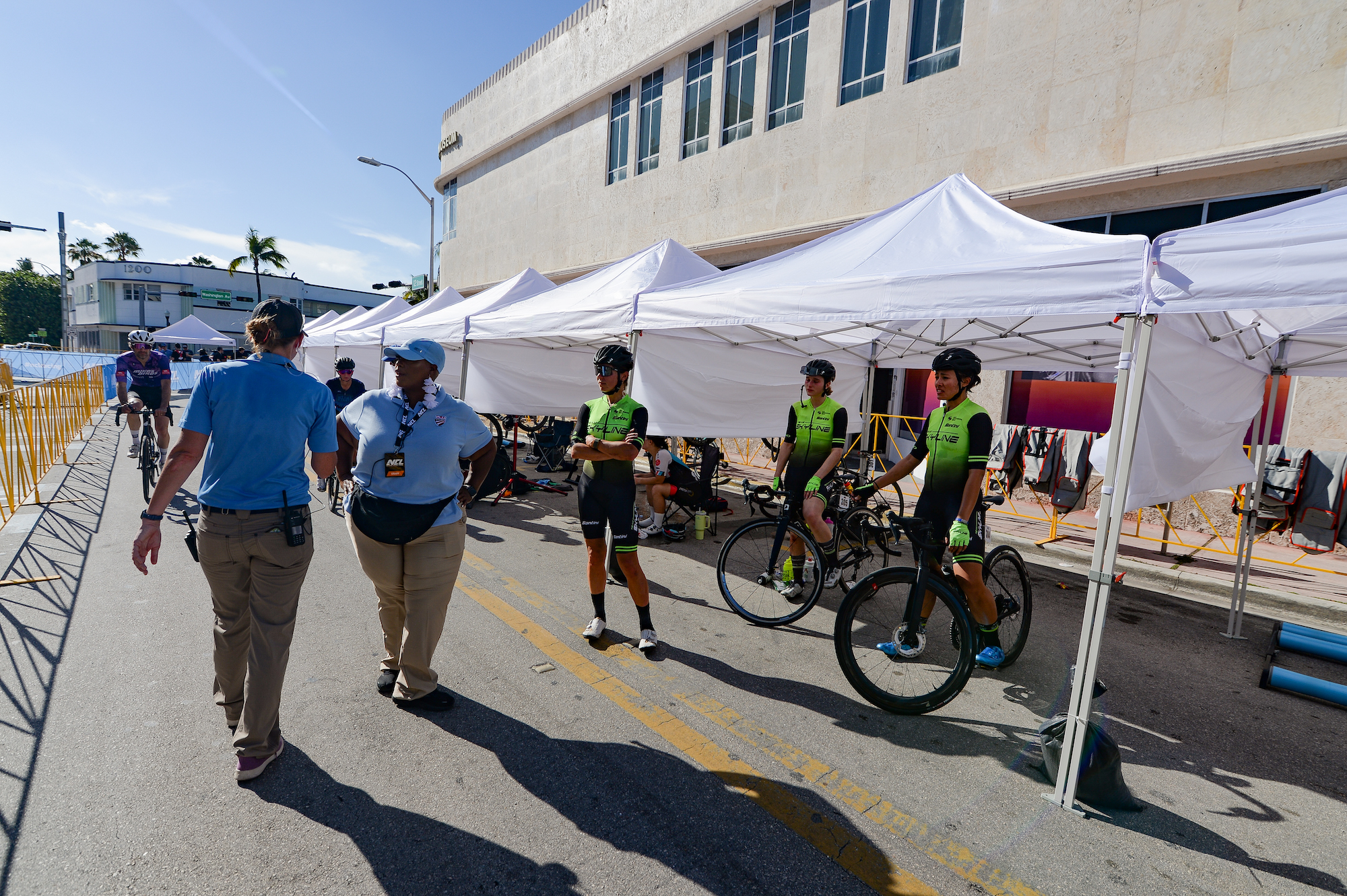
Riders at the ready to be substituted into the action
Henry: “I was pleasantly surprised”
The inaugural NCL race took place in Miami last weekend amid a massive spectacle and celebration to kick off the start of the new racing series and debut their new race format. More than just a race; there were community events all weekend surrounding the race.
Denver Disrupters rider Ava Hachmann told me that compared to the American Criterium Cup or the now-defunct USA Crits series, there was a lot more attention paid to fan engagement.
"Before the race, all teams were required to come to the team presentation and then ride a formation lap. I think that really created a connection with the people watching from the sidelines and a visual unity between the men's and women's squads. After the race, it was clear that fans were engaged in the outcome and because there was one winning team, there was no confusion on what the result was," she said.
"People who clearly did not follow cycling recognized our jerseys and team gear for the rest of the evening, as well as purchased Disruptors merch like it was an NBA game."
As explained above, the NCL has a unique race format which creates a bit of a learning curve for me, the viewer, as it does for a racer like Hachmann.
"The new format makes the racing a lot harder, it was full gas from the whistle and the pace only let up a few times during the 25 laps," she told me. "The NCL teams definitely had a mental/tactical advantage for the first laps since we tested the format at camp and knew what to expect, but it didn't take long for the other teams to figure out that the race was not going too slow and they had to be more aggressive. Everyone has to be mentally on it the entire race, riders, directors, mechanics. The race changed every lap."
With 138 points, the Denver Disruptors took an emphatic win ahead of the Miami Nights with 93 points and Goldman Sachs ETF/Texas Roadhouse with 29 points. There was a big points discrepancy between the top two teams and the rest of the field; none of the other teams cracked 30 points with several of the bottom teams scoring less than 10 points. With one round of racing under their belts, I'm curious to see if the non-NCL teams will step up for round 2 now that they've familiarized themselves with the racing.
The substitutions are an interesting new feature of bike racing. Like in soccer or basketball, teams can swap riders in and out of the race through the pit. This not only allows riders to rest, but a team could also potentially wait till later in the race to swap out their riders to gain an advantage over its more-tired competitors.
The equal gender representation, the points race format, the substitutions — these elements are all meant to make the NCL more exciting and more engaging for the riders and fans alike. But did it work?
I watched the first race with an admittedly skeptical view on what the racing would be like. However, I was very pleasantly surprised. The points system made the races very fast-paced and aggressive. Forcing a sprint every lap meant riders had to fight for position every lap and the only time the race seemed to let up was when a brief breakaway was established.
For me, watching the livestream, the race was easy to follow. There were clear graphics showing the team standings and which riders got points each lap. It made for a very exciting race and broke up the monotony of a single team riding the front for the whole race and then setting up a bunch sprint at the end — something that happens all too often at high-level American criteriums.
I think that the relatively short format, especially compared to European races, also makes the races more interesting to new fans who might not have seen a bike race before. You may not want to watch a four-hour stage but you can commit to an hour-and-a-half of action-packed racing.
To me, the points system and the team-focused atmosphere make it feel more like a traditional ball sport. For prospective American fans who haven't watched bike racing before, this is a much easier format to watch and understand instead of trying to learn WorldTour tactics, rider's roles and races-within-a-race.
This all made the Miami Invitational very interesting to watch, but they did have to make some sacrifices to achieve this. The last lap seems to be where this becomes most apparent. While there are more points on offer than the preceding laps, it's not enough to make the last lap of an NCL race equivalent to the tension and excitement of watching the last lap of a traditional criterium.
In both the men's and women's races, the rider who crossed the line first on the last lap posted up and celebrated like they had won the race despite their teams both finishing third in their respective races. The final lap felt anticlimactic as they did not feel to have a large impact on the overall finish of the race. Increasing the points up for grabs on the last lap or even implementing a traditional podium for the final lap could help to capture the tension-filled excitement of the end of a traditional race.
So, is the NCL the future for American cycling? Is it a good thing for domestic cycling? The huge investment in U.S. domestic racing is undoubtedly a good thing for a race scene that has been getting smaller and losing sponsors in the last ten years. With the addition of two new teams to the U.S. domestic circuit, they are also helping give more riders a chance to earn a livelihood from racing.
The new format will take some getting used to for both those racing and those watching, but my first impression is that the NCL is a great new opportunity for the sport to experiment with a new format of racing that focuses on a great spectator environment and team-based scoring.
The NCL Cup continues on August 13 in Denver, Colo.

Thank you for reading 20 articles this month* Join now for unlimited access
Enjoy your first month for just £1 / $1 / €1
*Read 5 free articles per month without a subscription

Join now for unlimited access
Try first month for just £1 / $1 / €1

Cycling Weekly's North American Editor, Anne-Marije Rook is old school. She holds a degree in journalism and started out as a newspaper reporter — in print! She can even be seen bringing a pen and notepad to the press conference.
Originally from the Netherlands, she grew up a bike commuter and didn't find bike racing until her early twenties when living in Seattle, Washington. Strengthened by the many miles spent darting around Seattle's hilly streets on a steel single speed, Rook's progression in the sport was a quick one. As she competed at the elite level, her journalism career followed, and soon, she became a full-time cycling journalist. She's now been a journalist for two decades, including 12 years in cycling.
- Henry LordIntern
-
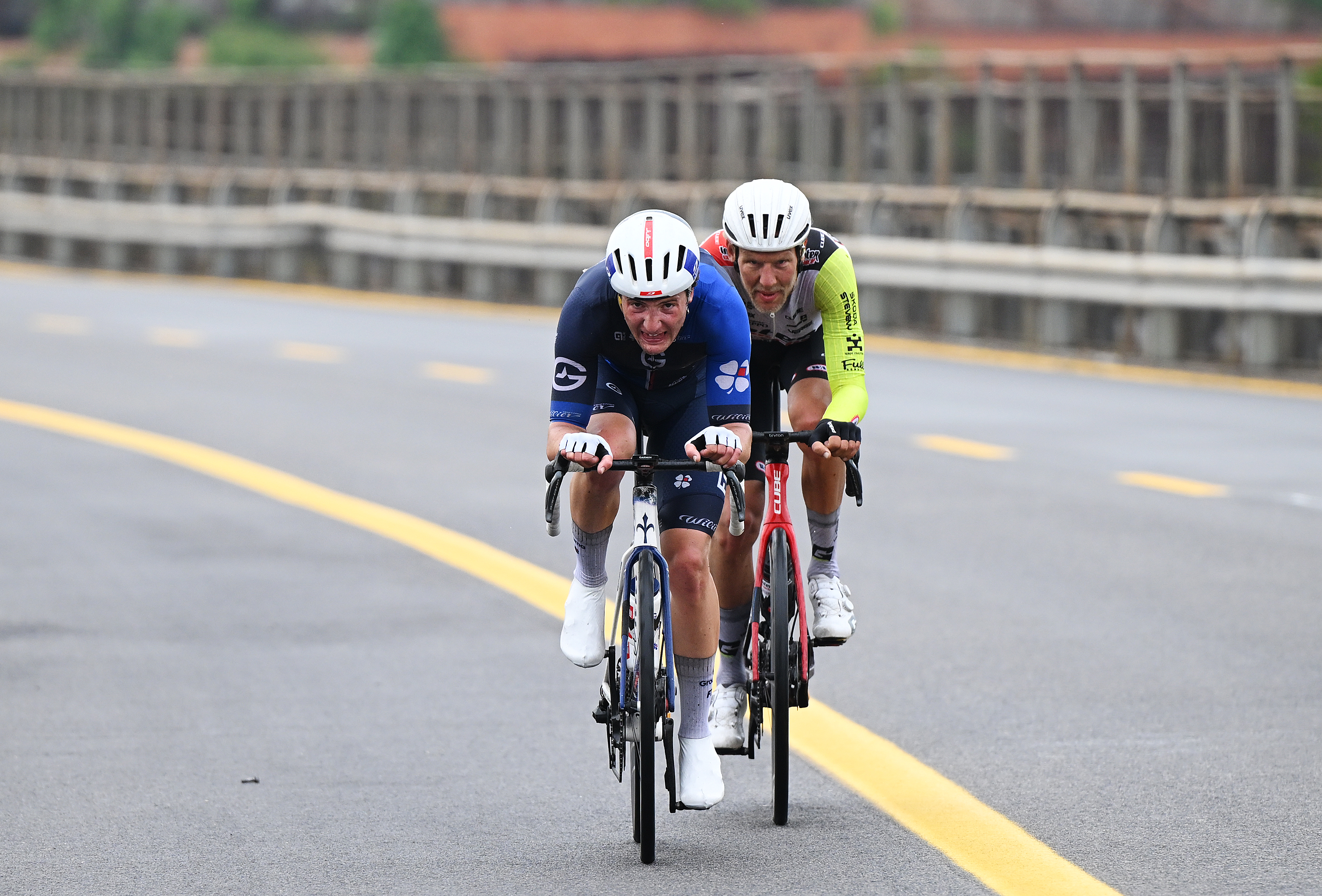 'It's a shame it had to end like this' - Giro d'Italia stage 6 finale affected by protestors
'It's a shame it had to end like this' - Giro d'Italia stage 6 finale affected by protestorsBreakaway of Taco van der Hoorn and Enzo Paleni was held up by two protestors in Naples
-
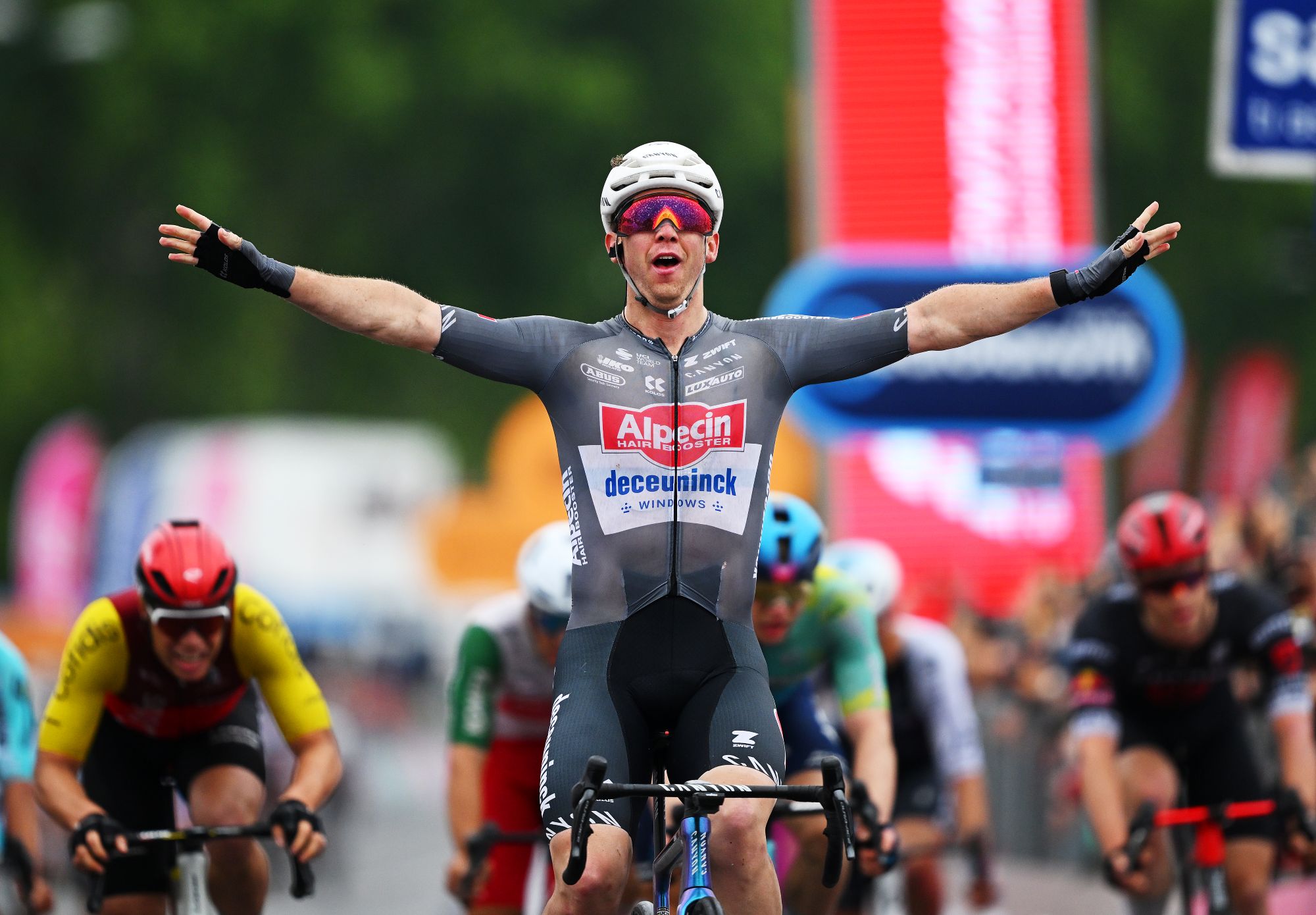 Kaden Groves wins crash-marred Giro d’Italia stage 6 in Naples
Kaden Groves wins crash-marred Giro d’Italia stage 6 in NaplesAustralian comes out on top in bunch sprint after chaotic day in Italy
-
 The National Cycling League appears to be fully dead
The National Cycling League appears to be fully deadEffective immediately, the NCL paused all its operations in order to focus on restructuring and rebuilding for the 2025 season.
-
 Dozens of riders left stranded as National Cycling League announces 2024 season hiatus citing 'current economic challenges in domestic and global cycling industry'
Dozens of riders left stranded as National Cycling League announces 2024 season hiatus citing 'current economic challenges in domestic and global cycling industry'Effective immediately, the NCL paused all its operations in order to focus on restructuring and rebuilding for the 2025 season.
-
 National Cycling League returns in 2024 with 10 teams contesting the Cup
National Cycling League returns in 2024 with 10 teams contesting the CupTen co-ed teams from across the U.S. will again compete in the dynamic National Cycling League criterium races in 2024 for their chance at a piece of the NCL's substantial prize purse.
-
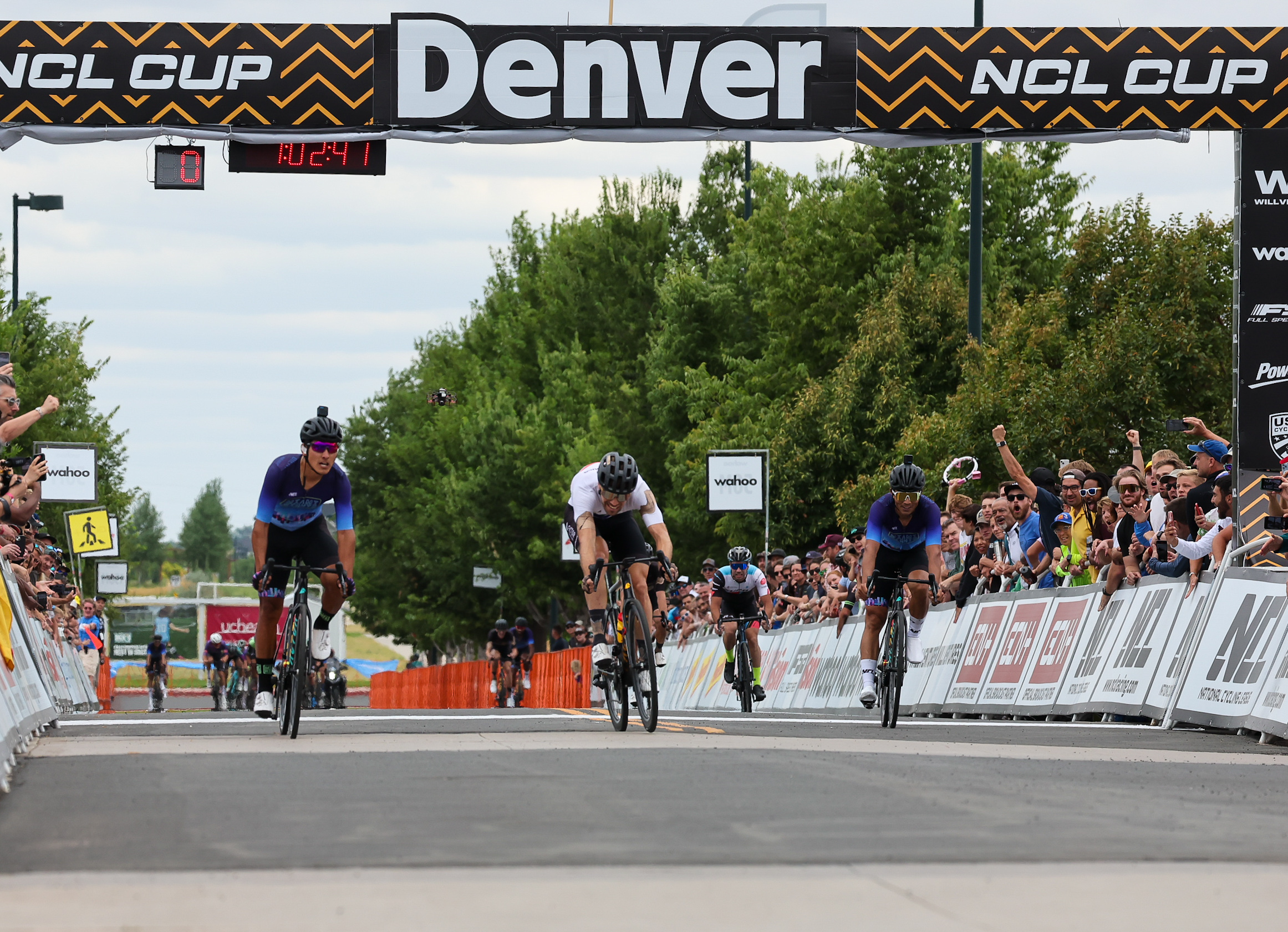 The NCL announces expansion while laying off majority of its riders
The NCL announces expansion while laying off majority of its ridersDozens of riders from the NCL franchise teams find themselves without contract for 2024, at the same time that the league announced its expansion and plans for the 2024 season.
-
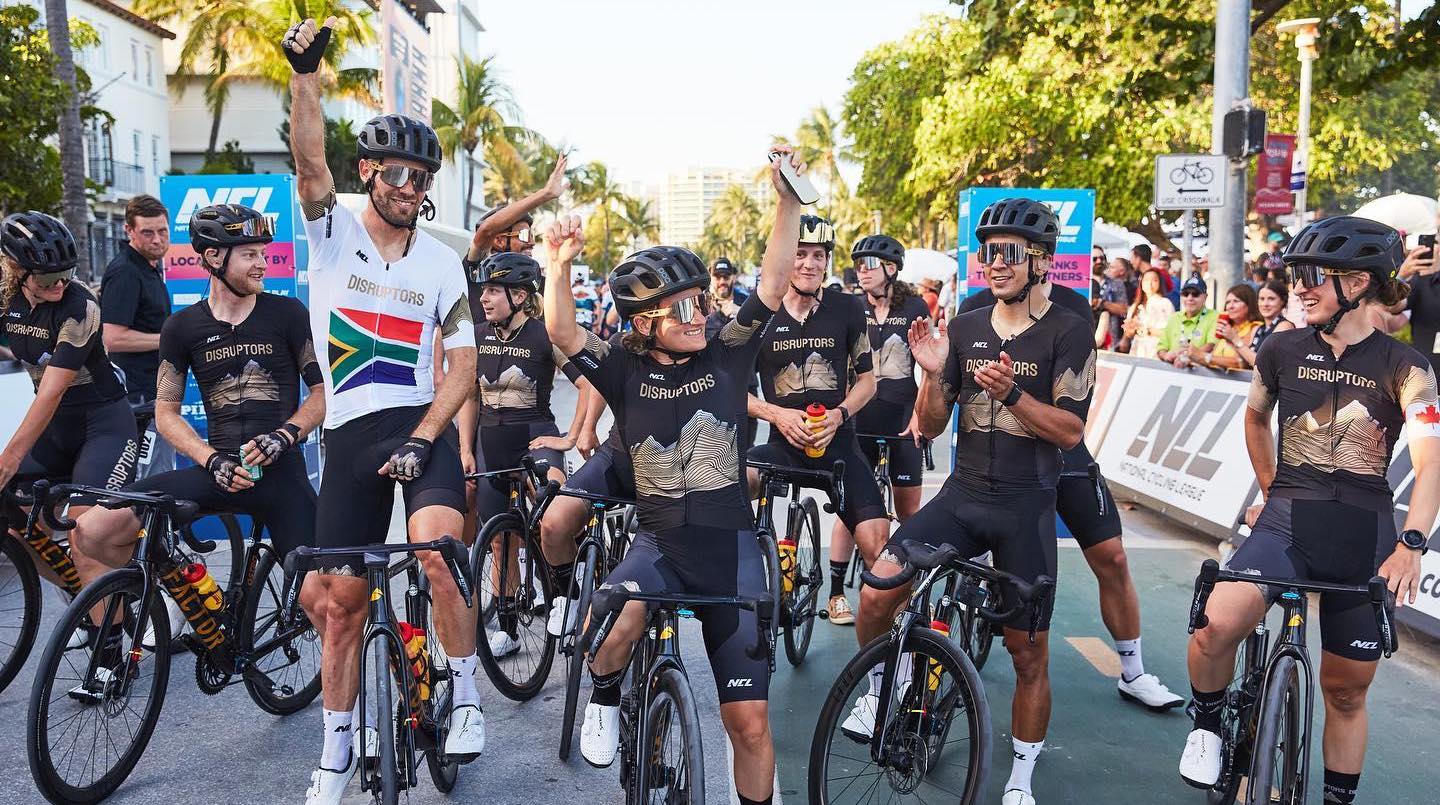 Valentina Scandolara suspended and fined for unsportsmanlike behavior
Valentina Scandolara suspended and fined for unsportsmanlike behaviorThe Italian racer was penalized after fighting broke out in the women’s race of NCL Cup Atlanta
-
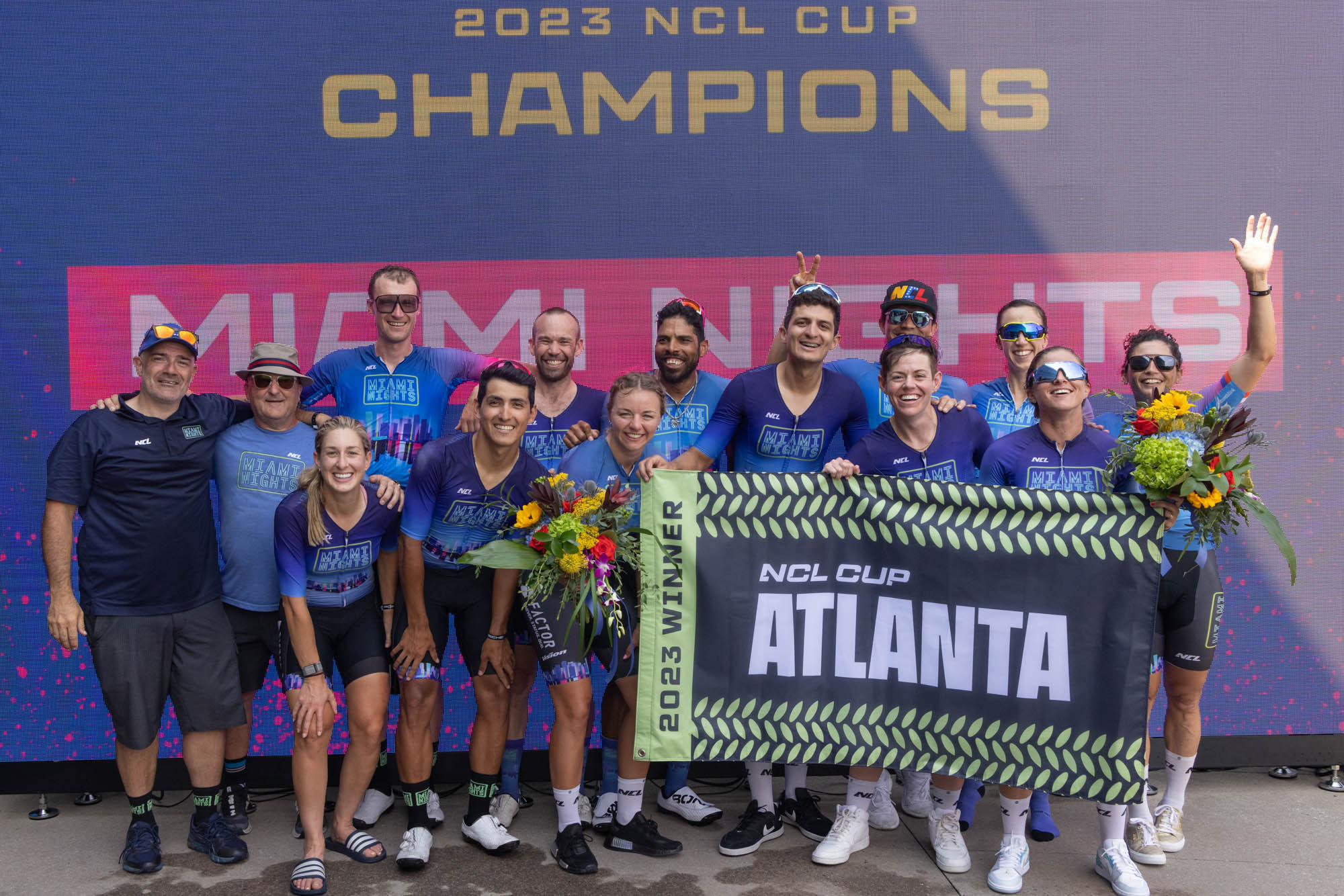 Miami Nights take a second win and secure the NCL Cup overall in heated series finale
Miami Nights take a second win and secure the NCL Cup overall in heated series finaleIn the National Cycling League's final match-up of the season, smaller teams take advantage of the Denver-Miami stalemate
-
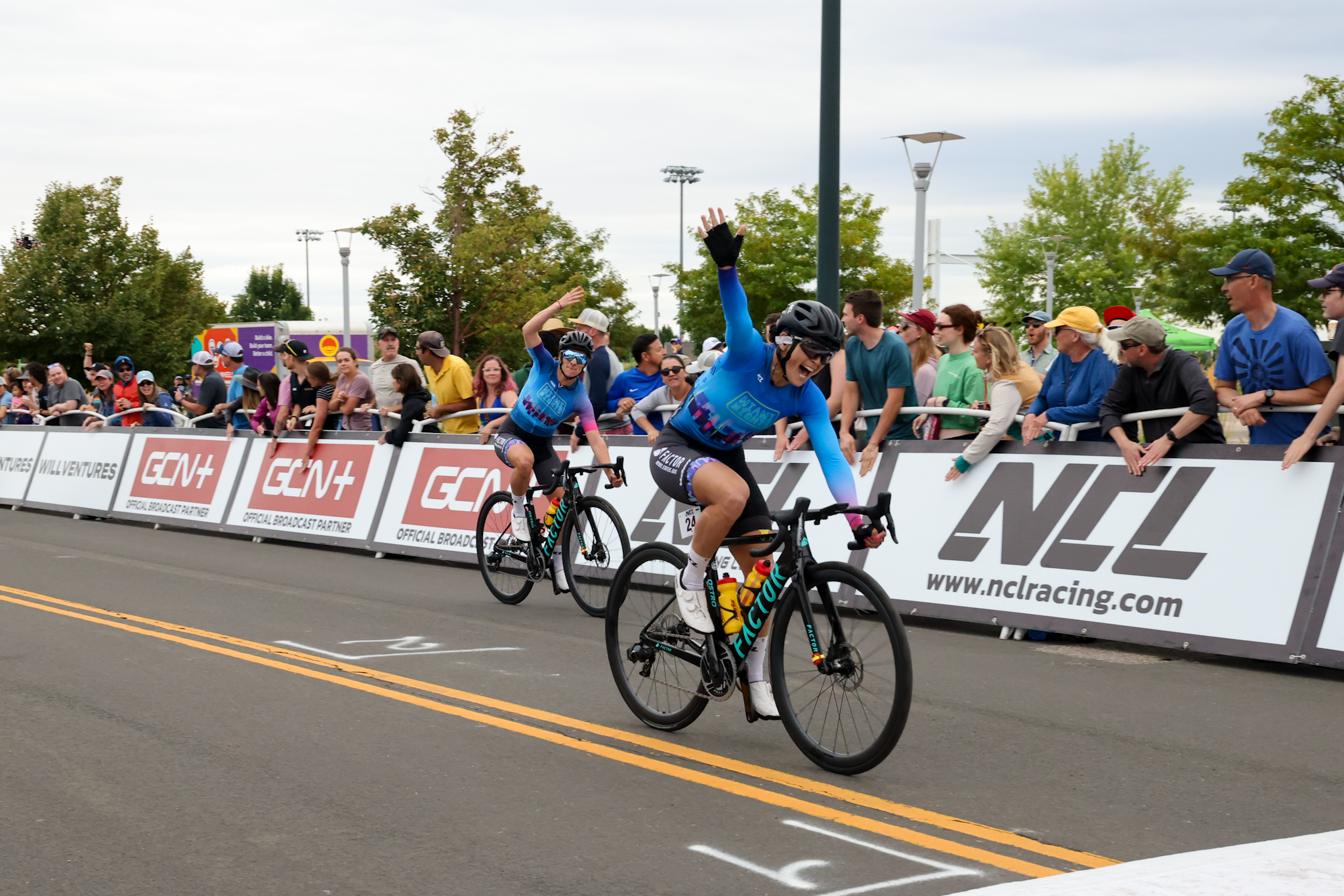 Are 'fan first' spectator friendly crits the future for bike racing?
Are 'fan first' spectator friendly crits the future for bike racing?Two races in, we've seen how the new racing format stacks up to traditional races, and I'm hopeful
-
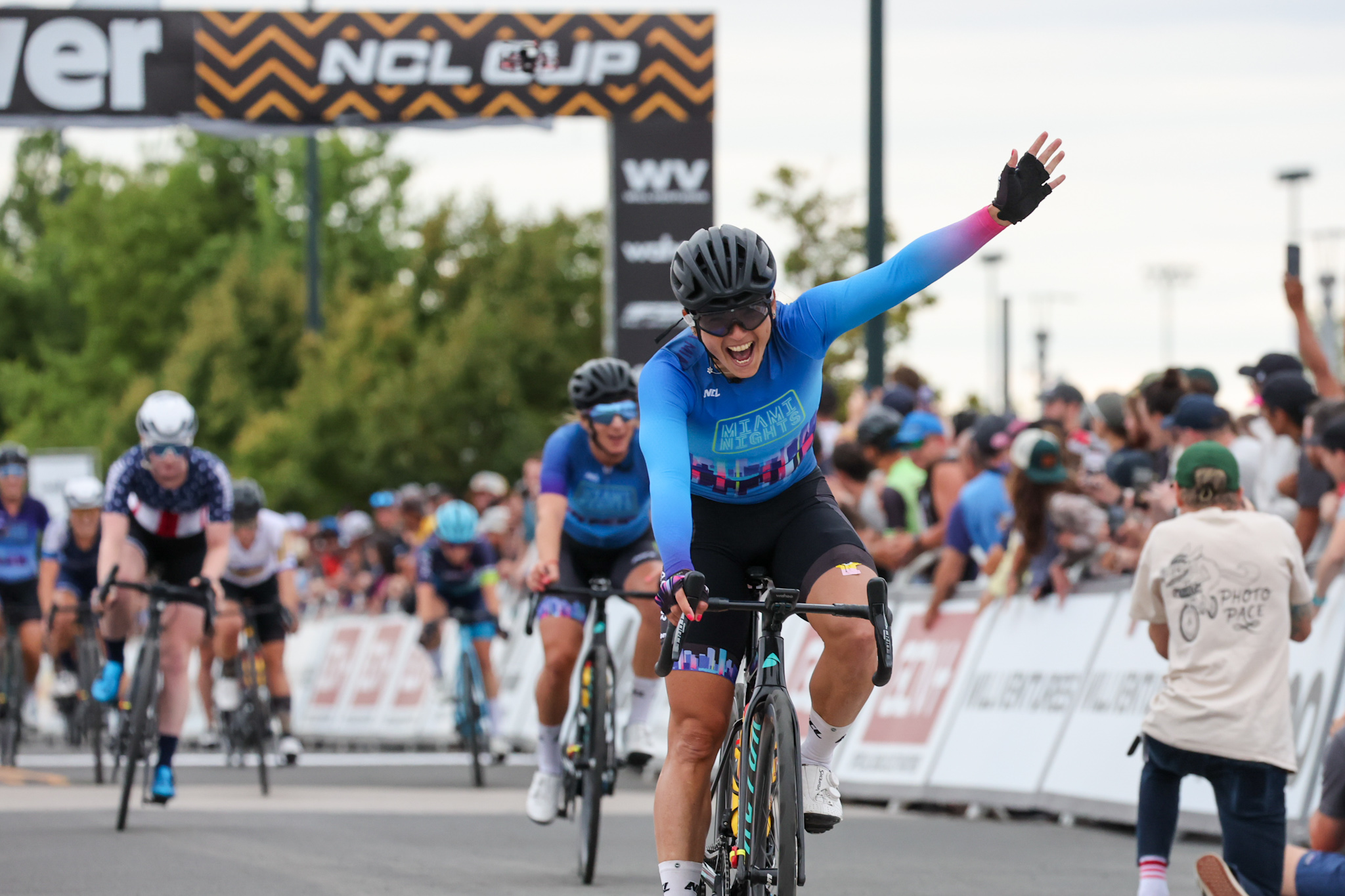 Miami Nights take the win at a thrilling Denver NCL Cup
Miami Nights take the win at a thrilling Denver NCL CupThe Nights turn the tables on Denver at the mile-high circuit